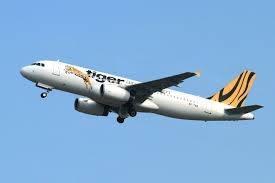
RIP Tiger Mandala: What carrier is next to die?
See why Singapore based carriers are the least advantaged.
After a decade of rapid growth, low cost carriers (LCCs) are now finding it hard to keep their foot on the accelerator amid difficult operating environment. Tigerair Mandala is gone and all eyes are now set on what LCCs could be next in line to banish from air.
According to Daniel Tsang, founder & chief analyst of Aspire Aviation, Tigerair Mandala's demise can be interpreted in two ways. The first has to do with Mandala's failure to establish a foothold in the hyper-competitive Indonesian market, rendering it suboptimal in scale and unable to gain from economies of scale.
“Its perennial trouble has been well-documented and its collapse is not surprising at all,” he said.
Secondly, the analyst noted that there are indeed signs there is a glut of overcapacity in Asia/Pacific.
“AirAsia has postponed deliveries of 19 A320s this year and next, Tigerair cancelling 9 deliveries, Jetstar Asia suspending growth, etc. While there is some rationalisation in the short-term, its sustainability is questionable. Whie Tigerair Mandala and Philippines have folded wings, Spring Airlines Japan, V Air of Taiwan, Tigerair Taiwan, Thai VietJet Air, NokScoot and a comeback of AirAsia Japan will add to the plethora of LCCs in the foreseeable future,” he said.
According to Tsang, there is no doubt Asia/Pacific is a market with promising potential, the key question is the demand/supply balance and yield from which airlines derive their profitability.
Credit Suisse's lead transport analyst in Asia Pacific, Timothy Ross, noted that LCCs in the region, with exceptions of Air Asia, are finding it hard to expand footprint outside their country operation and generate profits consistently. “It’s basically profit loss-making to expand footprint outside your regional sphere of influence and it follows Tiger's slimming down of activities in the Philippines, Australia, and recently its subscale property in Indonesia.”
A.R. Jeddi, in a paper titled ‘Low Cost Strategy Factors in Airline Industry: The Air Asia Case” released recently, he argued that due to regulatory environment that is different from deregulated environment in Europe and north of America, airline span of operation are usually confined to their countries border. In this regards, airlines based in Singapore, whose country of origin border is smaller than others, he said, is faced with more difficulties in expanding their operation in Southeast Asia.
Air Asia, meanwhile he said, tries to overcome this weakness and be closer to their customers in other areas in the region by establishing joint ventures with local companies in Indonesia, Philippines, Thailand and Japan. The outcome of this effort results in subsidiaries airlines for Air Asia such as Thai Air Asia and Indonesia Air Asia.
Apart from Tiger Air, Credit Suisse’ Ross cited LionAir and JetStar as among airlines likely to shrink their discount ventures outside their country of operation. He also expects more mergers and acquisitions happening in the sector in the short run as a result of the difficult environment.
“We’ve already seen Lion Air’s Malaysian and Thai operations that are basically loss-making so it's a matter of a question on how long will they be able to sustain operations. I fully expect JetStar to expand to Hong Kong in the near future,” he said.
Oasis Hong Kong, Viva Macau, Kingfisher Airlines are examples of Asian Airlines which shut operations recently due to financial problems while Malaysian Airlines is struggling and teetering on the brink.
For comments, you may send your message to krisana@charltonmediamail.com
























 Advertise
Advertise






